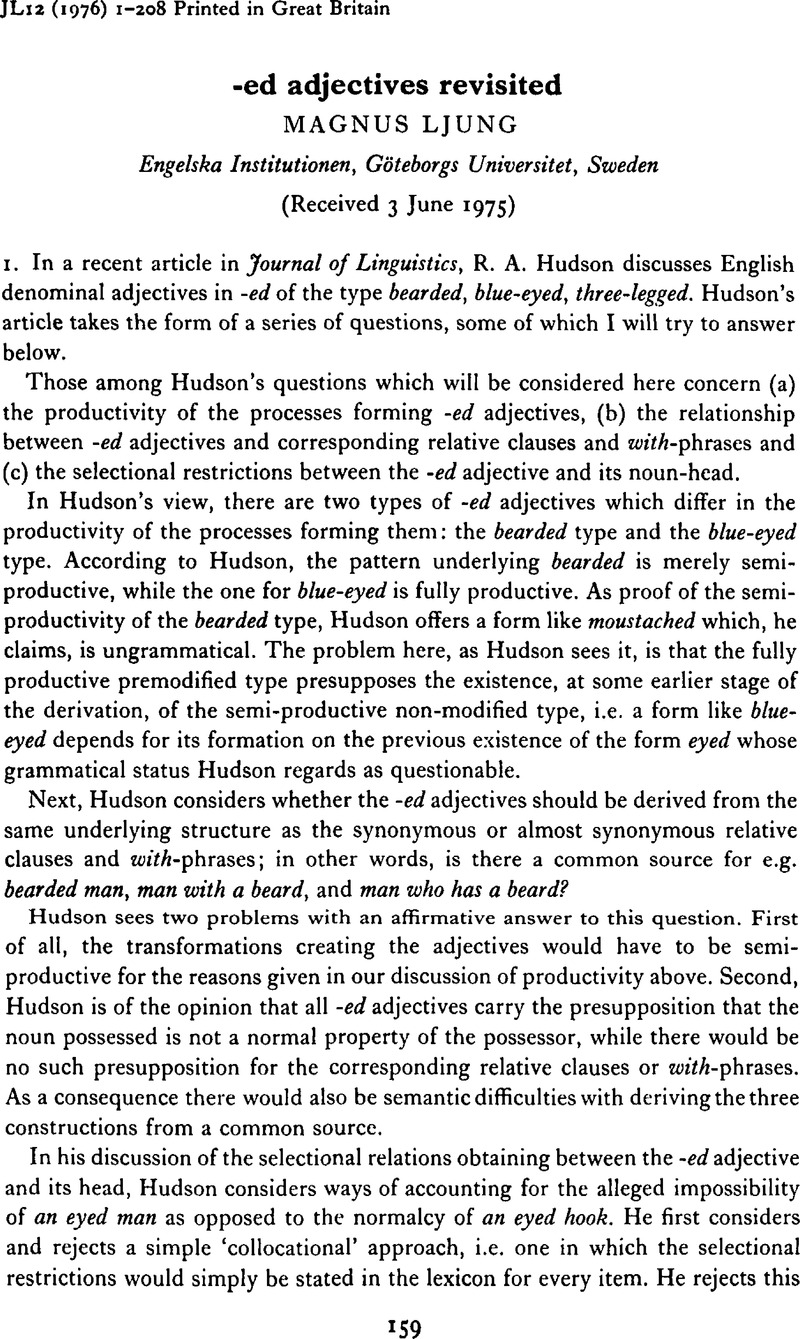Article contents
-ed adjectives revisited
Published online by Cambridge University Press: 28 November 2008
Abstract

- Type
- Notes and Discussion
- Information
- Copyright
-
Copyright © Cambridge University Press 1976
References
REFERENCES
- 7
- Cited by




